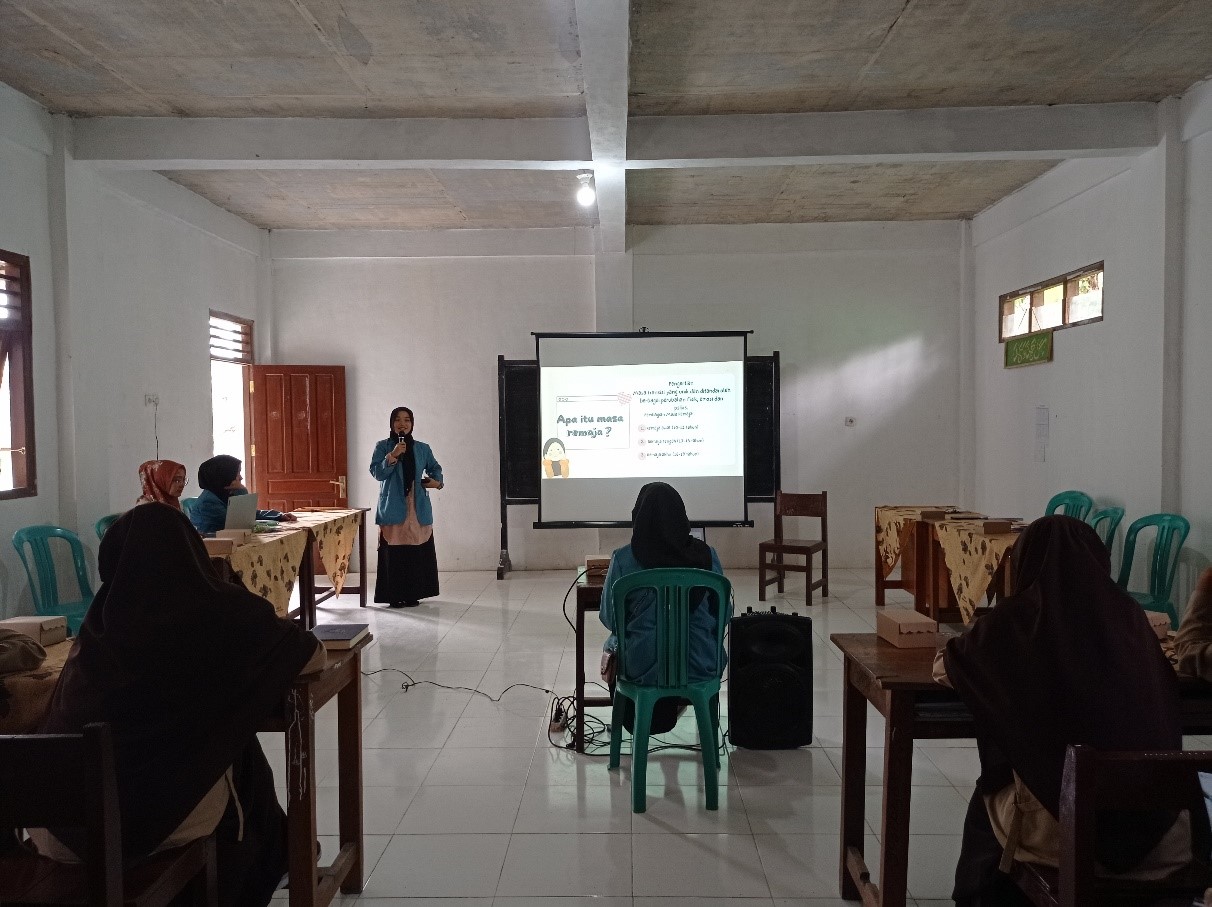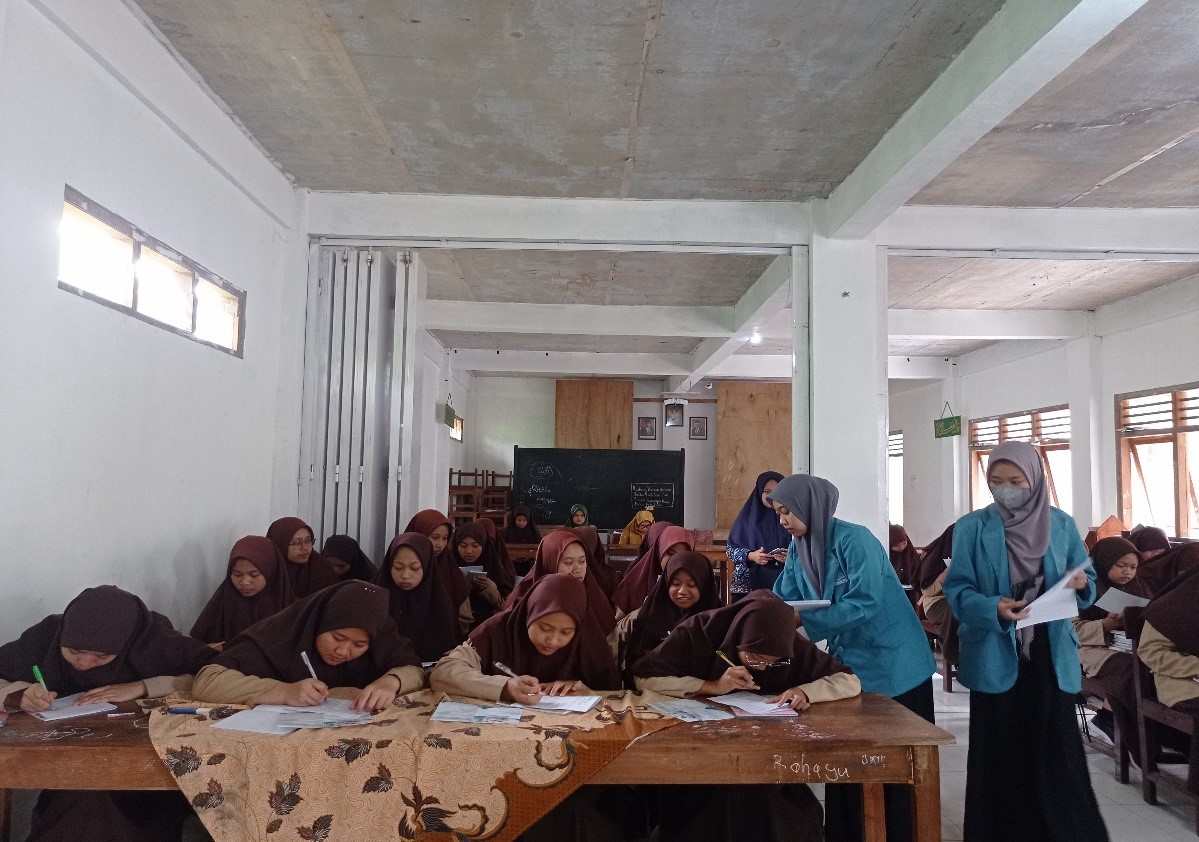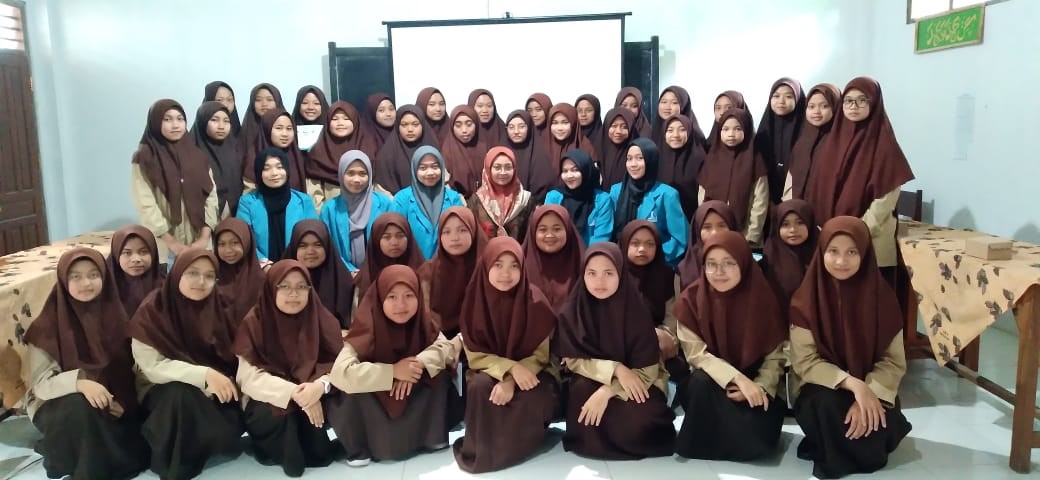REPRODUCTIVE HEALTH EDUCATION FOR ADOLESCENT GIRLS OF AT TAUHID AL ISLAMY ISLAMIC BOARDING SCHOOL IN KAPUHAN VILLAGE

D3 Midwifery Study Programme of Alma Ata – Adolescence is a transition period between childhood and adulthood and tends not to reach the stage of mental and social maturity so that they will more often receive conflicting emotional and social pressures. Many life events will be faced which will not only determine life in adulthood but also the quality of life of the next generation, thus placing this period as a critical period. Djama, N. T. (2017)
The needs and types of reproductive health risks faced by adolescents have different characteristics from children or adults. Reproductive health risks faced by adolescents include pregnancy, abortion, sexually transmitted diseases (STDs), sexual violence, hygienic behaviour, and limited access to health information and services. Various interrelated factors that can affect the risk of reproductive health are the demand for young marriage and sexual relations, access to education and employment, gender inequality, sexual violence, and the influence of mass media and lifestyles. Djama, N. T. (2017)
Adolescent girls’ understanding of their reproductive system and function is very important. Adolescents who do not have sufficient knowledge about reproductive health will tend to ignore their reproductive health and in the end, they will take actions that are harmful to themselves. Knowledge about reproductive health is also an important factor in determining women’s hygienic behaviour during menstruation. Low knowledge about reproductive health will make women fail to behave hygienically during menstruation (BKKBN, 2017). If adolescent girls perform hygienic behaviour during menstruation, they will certainly be able to avoid uterine cancer, feel comfortable and confident when doing activities, be extend and not lazy, not be shunned by friends because of body odour, and not believe in myths because already understand the truth. Meanwhile, if adolescent girls do not carry out hygienic behaviour properly, it can be concluded that adolescent girls are less concerned about the cleanliness of their reproductive organs and do not maintain their appearance and health during menstruation. They are likely to get uterine cancer, vaginal discharge, reduce activities during menstruation due to laziness, lack of confidence, believe in community myths about menstruatios, and will be shunned by friends because body odour (Mairo, 2015).


Most adolescents are in school which makes the school the place to get an education, including reproductive health, sexual, and health behaviour education. One of the education models in Indonesia is pesantren (boarding school), a place of teaching and learning that emphasises Islamic religious studies and is supported by dormitories as a place for students to live. Boarding schools have three categories, traditional, modern, and fusion systems. Most of the boarding school residents are called santri, who are teenagers aged 13-19 years old with the category of santri mukim, which are santri who live in the boarding school.
This activity is a means to learn and discuss adolescent reproductive health which aims to increase knowledge, attitudes change, and behaviour of adolescent girls to understand the importance of maintaining reproductive health.

